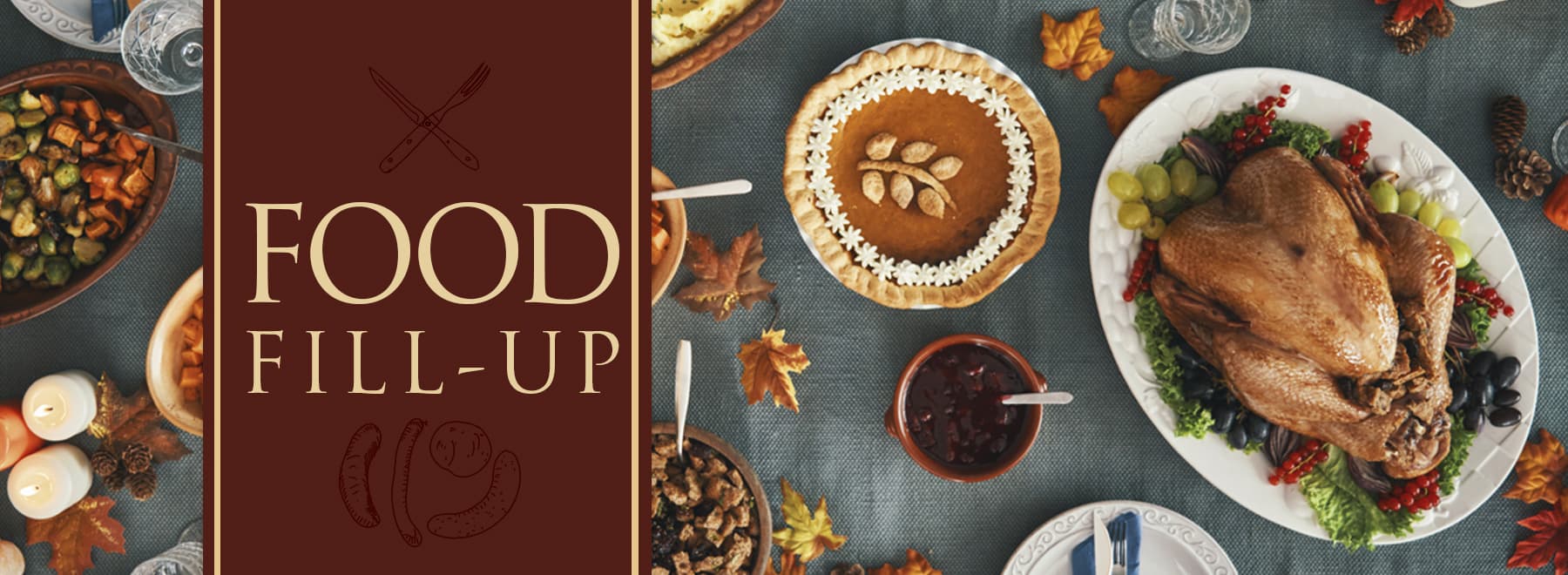Make a plan, avoid holiday overeating
It’s Christmas Day – or your birthday, for that matter – and the table is laden with turkey and dressing, mashed potatoes and gravy, mac and cheese, green bean casserole and talk about what’s for dessert.
Which dish is calling your name? Before you know it, you’ve eaten way too much, either by accident or design.

“The bottom line of overeating in any form is that you have lost touch with how to feed yourself and how to fill your body,” said Krista King, a University of Mississippi Medical Center registered dietician and nutritionist. “You are giving food power that it was never created to have.”
Instead, slow down, take a deep breath, and follow a plan for making sure overeating doesn’t mar the meal.

“This is really a bigger issue than just the holidays. We tend to think about the holidays as small isolated events, but they’re really not,” said Dr. Josie Bidwell, an associate professor in the Department of Preventive Medicine and nurse practitioner.
Overeating opens the door to a plethora of health problems in addition to weight management challenges, King and Bidwell say. And just because a particular food is considered “healthy” doesn’t mean you can have all you want of it.
“You could be sabotaging yourself by having too much of a good thing,” King said. An example: a mom who wants her child to eat a more healthy diet might place a bowl of apples on the kitchen counter. “Any time I’m hungry, I will fill up on the fruit,” the child might think.
“That’s a problem, because it will give you higher blood sugar,” King said. “I tell my patients that fruit is not free. It breaks down into sugar.”
We may think we are eating moderately, but aren’t, King said. “We underestimate how much we are ‘moderating’ when we are eating and drinking,” she said. “No matter if it’s healthy or unhealthy, every food has a portion.”
Good intentions can go out the window if you become desensitized to cues that you’ve gone from being full to being over-full, Bidwell said.
When faced with large quantities of food, “we tend to ignore our cues on when to eat and when not to eat,” Bidwell said. “It takes a while for your stomach to catch up to the sensation that you’re full. If we eat a large amount of food in a short time, our cues get messed up.
“If we ignore cues, we lose the ability to tell when we are full, and then we tend to overeat at other times as well,” she said. “It makes it that much more difficult to go back to a ‘normal’ eating pattern.”
Here are tips from Bidwell and King on how to make your meal both enjoyable and under your control, not the other way around:
- Learn to control your eating without traditional dieting. “Often, they don’t work,” King said. “We might start off doing really well, and then life happens. We quit the diet and we binge. That’s when overeating begins.
“We need to find a balance with our relationship with food. You can have your favorites if you learn how to do it correctly.”
- Don’t eat while you’re playing on your phone or computer, or watching TV.
“My biggest tip for distracted eating is to not do it in front of a screen,” Bidwell said. “Instead, have a bona fide conversation with someone. That forces you to chew and swallow and talk, and to slow down and be present in the moment.”
- Consider adding healthy options to the table.
“Let’s say whatever veggie is your favorite is normally cooked in butter,” Bidwell said. “If we swap that out with broth or stock, then finish it with a small pat of butter, you have probably drastically cut back on calories but not changed the flavor profile.”
- Don’t assume that because you are one of those people who “eat anything” without gaining weight that you can get a free pass.
“In diet culture or the way we think about health, the focus is on what someone looks like on the outside, and not on what they look like on the inside,” Bidwell said. “That’s incorrect on so many levels.
“Just because someone is a normal weight doesn’t mean they are healthy. They might have decreased risk for weight-related diseases, but can be eating a diet that puts them at risk of high blood pressure and cholesterol, elevated blood sugar, and damage to their liver.”
A final piece of advice, believe it or not: “Don’t worry about calories during the holidays,” Bidwell said.
Instead, plan them.
“If you are going to have your favorite foods, spend your calories wisely. Sweet drinks and sodas aren’t necessary at the holiday table and take up calories that could be spent on food.
“Water should be your beverage of choice at the holiday table,” she said. “Add a sparkling water with a squeeze of lemon or lime. It gives you a little more flavor, and it’s festive!”
— — —
Here’s a healthy but tasty recipe that’s one of Bidwell’s holiday favorites:
Air Fryer Asparagus
- 1 pound asparagus, washed and trimmed
- Olive oil spray
- ¼ teaspoon each of salt, pepper and garlic powder
Spray the asparagus with olive oil spray and toss with salt, pepper and garlic powder. Add to air fryer basket and cook at 375 degrees for 10 minutes.
The above article appears in CONSULT, UMMC’s monthly e-newsletter sharing news about cutting-edge clinical and health science education advances and innovative biomedical research at the Medical Center and giving you tips and suggestions on how you and the people you love can live a healthier life. Click here and enter your email address to receive CONSULT free of charge. You may cancel at any time.



